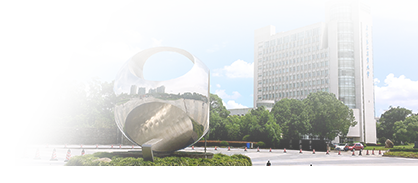Topic: Ai-enabled research - data and knowledge-driven design and preparation of new materials
Time: April 23,14: 00pm-16: 00pm
Venue: Conference Room 518, Building 15
Chaired by: Qiu Wu, Associate Research Fellow
About the reporter:
Researcher Liu Jianjun is currently Deputy Director of the State Key Laboratory of High Performance Ceramics and Ultrastructure / Department of Frontier, Shanghai Institute of Silicate, Chinese Academy of Sciences, and Distinguished Core Researcher of Chinese Academy of Sciences. It was selected into the 2012 CAS Outstanding Talents Program, the 2020 Shanghai Excellent Academic Leaders Program, and the 2024 Shanghai Oriental Elite Talents Program (the former Shanghai Leading Talents Program). Liu Jianjun, the researcher, has long been devoted to the application of artificial intelligence in energy materials research, focusing on the frontier exploration of computational materials science, electrochemistry and material design, and promoting the deep integration of computation and experiment. The MatMind model developed under the leadership of the team combines artificial intelligence technology and autonomous experiment iteration, fuses multi-scale data and cross-domain knowledge, promotes the close integration of computation and experiment, and promotes interdisciplinary collaboration. It provides precise support for material research and development. In that pap, a new type of solid electrolyte material, Li3Zr2Si2PO12, has been designed and selecte by the Nobel laureate Goodenough as one of the 10 most important catalytic research achievements in lithium battery. Included in the 2022 Shanghai Science and Technology Progress Report. Has been published in Nat.Commun., Sci.Adv., J.Am.Chem.Soc., Angew.Chem.Int.Ed., Chem, Adv.Mater., Energy Environ. Sci and other international famous journals published more than 150 influential papers and more than 10 invitation reports for international conferences. Currently, he is a member of the energy chemistry branch of the chinese chemical society, a member of the advanced inorganic materials branch of the chinese society of materials, and an associate editor of npj computational materials.
Introduction to lecture:
This lecture will focus on AI-enabled research and explore the latest advances and applications of large models, agents and machine learning potential energy (MLIP). Large models, with their large scale of parameters and strong reasoning ability, have driven changes in various fields, especially in materials science. Agents realize self-optimization in complex environments through autonomous perception, decision-making and reinforcement learning, and especially play an important role in adaptive experiments and automated exploration of material design. Machine learning potential energy models (MLIP) accurately model atomic-level interactions through machine learning techniques, improving computational efficiency and accurately predicting material properties. This lecture will provide an in-depth analysis of how these technologies can be incorporated into applications, driving developments in areas such as materials science and artificial intelligence.
- Topic: Ai-enabled research - data and knowledge-driven design and preparation of new materials
- Topic: Fame: A Fast Simulation Algorithm for 3D Photonic Crystals
- Topic: Controllable rogue waves in a compressive hyperplastic plate
- Topic:Renewable Quantile Regression with Heterogeneous Streaming Datasets
- Topic:A general framework to extend sufficient dimension reductions to the cases of the mixture mul...




